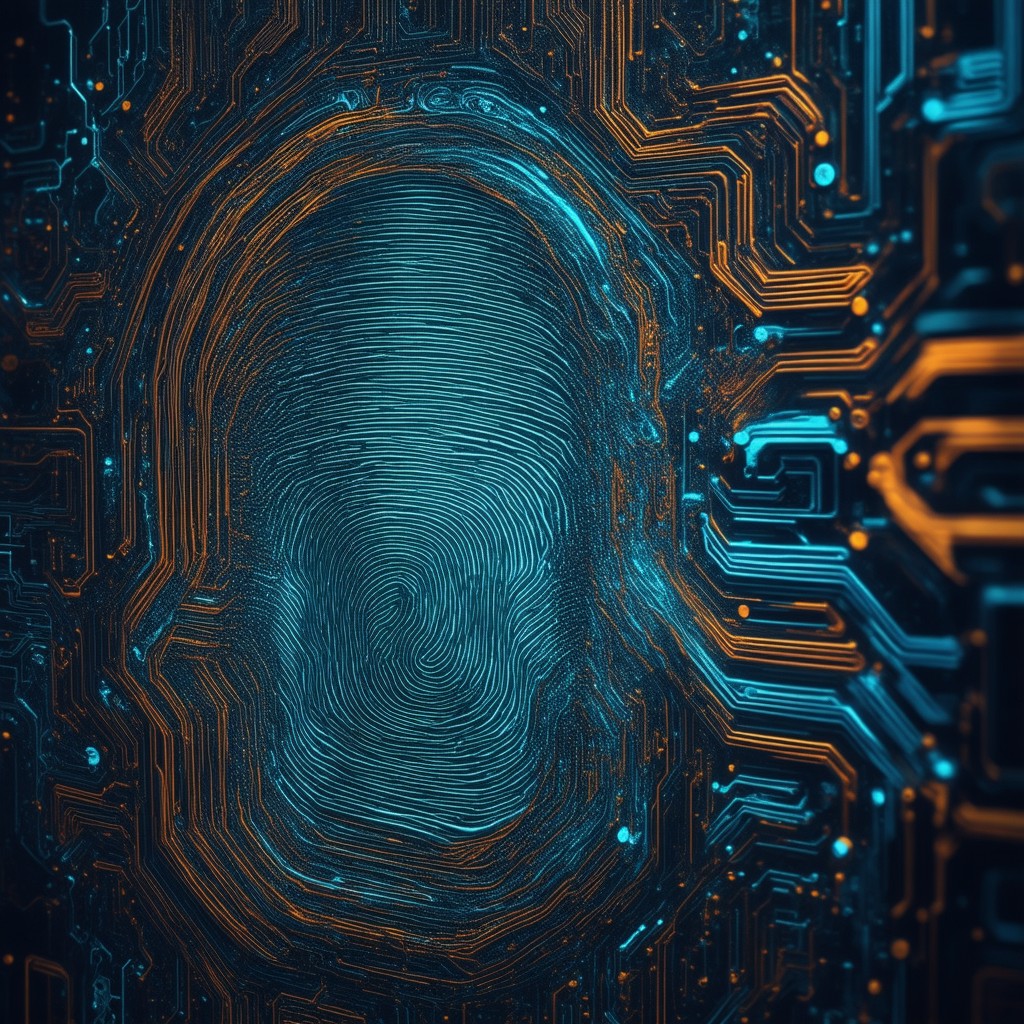Key Takeaways
- Understanding Biometrics: Biometrics refers to unique physical and behavioral traits used for secure identification, enhancing security across sectors.
- Biometric Technology Growth: The biometric market is projected to reach $60 billion by 2025, driven by innovations in biometric products and increasing security demands.
- Real-World Applications: Biometrics examples include fingerprint scanners, facial recognition, and iris scanning, streamlining processes and improving security in daily life.
- Risks and Ethical Concerns: While biometrics enhance security, risks include data breaches and privacy issues, necessitating robust security measures and ethical considerations.
- Leading Companies: Key players in the biometrics industry are innovating solutions that shape the future of secure access and data management.
Welcome to our comprehensive guide on biometrics products, where we delve into the fascinating world of biometric technology and its profound impact on various industries. In this article, we will explore the definition and meaning of biometrics, shedding light on how biometric data is revolutionizing security measures through advanced biometric databases. We will also provide real-world examples of biometrics in everyday life, showcasing innovative solutions that enhance both security and convenience. As we navigate through the current biometrics market statistics and growth projections, we will also address the risks associated with biometrics, ensuring a balanced understanding of this technology. Finally, we will highlight leading biometric companies that are shaping the future of this industry with their cutting-edge products. Join us as we uncover the multifaceted aspects of biometrics and its transformative role in our lives.
What are biometrics?
Biometrics refers to the measurement and statistical analysis of people’s unique physical and behavioral characteristics. This technology is increasingly utilized for identification and access control, as well as for identifying individuals in groups that are under surveillance. The biometrics definition encompasses various methods, including fingerprint recognition, facial recognition, iris scanning, and voice recognition. Each of these methods relies on the collection and analysis of biometric data to verify an individual’s identity.
Biometrics definition and meaning
The meaning of biometrics lies in its ability to provide a secure and reliable means of identification. Unlike traditional methods such as passwords or PINs, which can be forgotten or stolen, biometric identifiers are inherently linked to the individual. This makes biometrics a powerful tool in enhancing security across various sectors, including finance, healthcare, and personal devices. As the biometric technology market continues to grow, understanding its foundational concepts becomes essential for both consumers and businesses alike.
Overview of biometric technology
Biometric technology encompasses a range of systems and devices designed to capture and analyze biometric data. These systems often utilize advanced biometrics hardware and software to ensure accurate identification. For instance, fingerprint scanners use sensors to capture the unique patterns of an individual’s fingerprints, while facial recognition systems analyze facial features through algorithms. The integration of biometric products into everyday applications, such as smartphones and security systems, highlights the versatility and effectiveness of this technology.
As we delve deeper into the world of biometrics, it’s crucial to explore how biometric databases play a role in storing and managing this sensitive data. These databases are essential for the functioning of biometric systems, allowing for quick and efficient verification processes. For more insights on how biometrics can enhance your health and wellness journey, consider exploring our Biometics liquid vitamins and their benefits.
What is biometrics?
Biometrics refers to the measurement and statistical analysis of people’s unique physical and behavioral characteristics. This technology is increasingly utilized across various sectors, enhancing security and streamlining processes. Understanding biometric data and its applications is crucial for grasping how biometrics can transform our interactions with technology and improve security measures.
Understanding biometric data and its applications
Biometric data encompasses a wide range of identifiers, including fingerprints, facial recognition, iris scans, and voice patterns. These unique traits are collected and analyzed to verify an individual’s identity. The applications of biometric technology are vast, ranging from unlocking smartphones to securing access to sensitive information in corporate environments. For instance, biometric solutions are now commonplace in airports, where facial recognition systems expedite passenger processing and enhance security protocols.
Moreover, the integration of biometrics into everyday devices has made it easier for users to authenticate their identities quickly and securely. This technology not only improves user experience but also significantly reduces the risk of unauthorized access. As we delve deeper into the world of biometrics, it becomes evident that the potential for innovation is immense, paving the way for more advanced biometric products that cater to diverse needs.
The role of biometric databases in security
Biometric databases play a pivotal role in the effectiveness of biometric systems. These databases store vast amounts of biometric data, allowing for quick and accurate identification of individuals. Security agencies and organizations utilize biometric databases to enhance their security measures, ensuring that only authorized personnel can access sensitive areas or information.
For example, law enforcement agencies use biometric databases to match fingerprints or facial images against existing records, aiding in criminal investigations and enhancing public safety. The reliability of these databases is crucial, as they must maintain high levels of accuracy to prevent false positives or negatives. As the biometric technology market continues to evolve, the importance of robust biometric databases will only increase, driving innovations in security solutions.
What are some examples of biometrics?
Biometrics are increasingly becoming a part of our daily lives, providing enhanced security and convenience. Understanding biometrics examples can help us appreciate their role in various sectors. From unlocking our smartphones to securing sensitive data, the applications of biometric technology are vast and varied.
Biometrics examples in everyday life
In our everyday routines, we encounter several biometric products that utilize unique physical characteristics for identification. Here are some common biometrics examples:
- Fingerprint Scanners: Widely used in smartphones and laptops, fingerprint recognition is one of the most common forms of biometric authentication.
- Facial Recognition: This technology is used in security systems and social media platforms to identify individuals based on their facial features.
- Iris Scanners: Often employed in high-security environments, iris recognition offers a high level of accuracy by analyzing the unique patterns in the colored part of the eye.
- Voice Recognition: Used in virtual assistants and security systems, voice biometrics authenticate users based on their unique vocal characteristics.
These biometric solutions not only enhance security but also streamline user experiences, making technology more accessible and efficient.
Innovative biometrics solutions in various industries
Beyond everyday applications, biometric technology is revolutionizing various industries. Here are some innovative uses:
- Healthcare: Biometric systems are used to secure patient records and ensure that only authorized personnel can access sensitive information.
- Banking: Financial institutions are adopting biometric authentication methods to enhance security for online transactions and account access.
- Travel: Airports are implementing facial recognition systems to expedite check-ins and improve security measures.
- Workplace Security: Many companies are using biometric access controls to restrict entry to sensitive areas, ensuring that only authorized employees can gain access.
These advancements in biometric products not only improve security but also enhance operational efficiency across various sectors. For those interested in exploring more about Biometics nutritional supplements or Biometics liquid vitamins, consider creating a free account to enjoy exclusive benefits and savings.
What is the biometric market size?
The biometric market has seen significant growth in recent years, driven by advancements in biometric technology and increasing demand for security solutions across various sectors. As of 2025, the biometric industry is projected to reach a market size of approximately $60 billion, reflecting a compound annual growth rate (CAGR) of around 15% from 2021 to 2025. This growth is fueled by the rising adoption of biometric products in areas such as mobile devices, healthcare, and financial services.
Key biometric statistics indicate that facial recognition technology is leading the market, accounting for over 30% of the total revenue. Other popular biometrics solutions include fingerprint scanning and iris recognition, which are increasingly integrated into security systems and personal devices. The demand for biometric data in enhancing security measures is a primary driver of this market expansion.
Current biometrics market statistics and trends
Recent research on biometrics highlights several trends shaping the market. The integration of artificial intelligence (AI) with biometric technology is enhancing accuracy and efficiency, making biometric systems more reliable. Additionally, the rise of smart cities and the Internet of Things (IoT) is creating new opportunities for biometric hardware and software applications.
Moreover, the increasing focus on data privacy and security regulations is prompting organizations to invest in biometric databases to safeguard sensitive information. As businesses and governments prioritize security, the demand for biometric products is expected to continue its upward trajectory.
Growth projections for the biometric industry
Looking ahead, the biometric market is anticipated to expand further, with projections indicating that it could surpass $100 billion by 2030. Factors contributing to this growth include the rising need for secure authentication methods, the proliferation of mobile payment systems, and the increasing use of biometrics examples in everyday life, such as unlocking smartphones and accessing secure facilities.
As the biometric industry evolves, innovations from leading biometry companies will play a crucial role in shaping future trends. Staying informed about these developments can help consumers and businesses alike make informed decisions about adopting biometric solutions.
To explore more about how biometics products can enhance your health and wellness, visit our Biometics nutritional supplements page.
What are the risks associated with biometrics?
As we delve into the world of biometrics, it’s essential to understand the potential risks that accompany this innovative technology. While biometric products offer enhanced security and convenience, they also present unique challenges that must be addressed to ensure user safety and data integrity. Here, we will analyze the risks associated with biometrics in terms of data security and explore the ethical considerations surrounding the use of biometric data.
Analyzing biometrics risks in data security
The integration of biometric technology into various systems raises significant concerns regarding data security. One of the primary risks is the potential for biometric databases to be compromised. Unlike traditional passwords, biometric data such as fingerprints or facial recognition cannot be changed once stolen. This permanence makes it crucial to implement robust security measures to protect sensitive information.
- Data Breaches: High-profile data breaches have exposed the vulnerabilities of biometric systems. If hackers gain access to a biometric database, they can misuse the data for identity theft or fraud.
- False Positives and Negatives: The accuracy of biometric solutions can vary. A false positive may grant unauthorized access, while a false negative could deny legitimate users, leading to frustration and security concerns.
- Privacy Issues: The collection and storage of biometric data raise privacy concerns. Users may not be fully aware of how their data is being used or shared, leading to a lack of trust in biometric products.
Ethical considerations in biometric data usage
Beyond technical risks, the ethical implications of using biometric data warrant careful consideration. As we adopt biometric technology in various sectors, we must address the following ethical concerns:
- Informed Consent: Users should be fully informed about how their biometric data will be collected, stored, and utilized. Clear communication is essential to ensure that individuals can make informed decisions.
- Data Ownership: Questions surrounding who owns biometric data remain unresolved. Users may feel that they should have control over their data, including the right to delete it.
- Discrimination Risks: The use of biometric solutions can inadvertently lead to discrimination, particularly if certain groups are disproportionately affected by inaccuracies in biometric technology.
Understanding these risks is vital for anyone considering the use of biometric products. By addressing security and ethical concerns, we can harness the benefits of biometrics while safeguarding user rights and data integrity. For those interested in exploring biometrics products that prioritize safety and efficacy, I encourage you to explore Biometics nutritional supplements designed to support overall wellness.
How do biometics products enhance health?
Biometics products, particularly micellized liquid vitamins, are designed to optimize nutrient absorption and enhance overall health. Unlike traditional supplements, these liquid formulations provide a more bioavailable source of essential vitamins and minerals, ensuring that your body receives the nutrients it needs efficiently. This innovative approach to supplementation is revolutionizing how we think about health and wellness.
Exploring biometics liquid vitamins and their benefits
Biometics liquid vitamins, such as Bio Fuel and Bio Alert, are formulated to support various aspects of health, including energy levels, immune function, and cognitive clarity. The micellization process breaks down vitamins into smaller particles, allowing for faster absorption into the bloodstream. This means that users experience quicker and more effective results compared to traditional pill-based supplements.
- Enhanced Absorption: The micellized form of these vitamins ensures that your body can utilize them more effectively, leading to improved health outcomes.
- Convenience: Liquid vitamins are easy to consume and can be taken on the go, making them a practical choice for busy lifestyles.
- Targeted Support: Different formulations are tailored to address specific health needs, from boosting energy to supporting joint health.
For those interested in exploring these benefits further, I encourage you to discover Biometics liquid vitamins and see how they can fit into your wellness routine.
The impact of Biometrix vitamins on wellness
Biometrix vitamins are at the forefront of nutritional science, providing a unique blend of essential nutrients that cater to individual health needs. These products not only enhance physical health but also contribute to mental well-being. Research indicates that proper nutrition plays a crucial role in maintaining mental clarity and emotional balance.
- Support for Mental Clarity: Ingredients in Biometrix vitamins are chosen for their ability to support cognitive function, helping you stay focused and alert throughout the day.
- Immune Health: With a blend of vitamins and minerals, these products bolster your immune system, helping you fend off illnesses.
- Overall Vitality: Regular use of Biometrix vitamins can lead to increased energy levels and improved overall vitality, making it easier to engage in daily activities.
To learn more about how these vitamins can enhance your health, check out our Essential Biometics for optimal health guide.
What are the leading biometric companies?
In the rapidly evolving biometrics industry, several companies stand out for their innovative solutions and contributions to biometric technology. These biometric companies are at the forefront of developing advanced systems that enhance security, streamline operations, and improve user experiences across various sectors.
Overview of top biometrics companies in the market
Leading the charge in the biometric market are companies like IDEMIA, which specializes in identity verification solutions, and Advanced Card Systems, known for its biometric hardware solutions. These companies leverage cutting-edge technology to provide biometrics solutions that cater to diverse applications, from secure access control to mobile device authentication.
Another notable player is Biometric Update, which offers insights and updates on the latest trends and statistics in the biometric technology market. Their research on biometrics helps businesses and consumers stay informed about advancements and best practices in the field.
Innovations from leading biometry companies and their products
Innovations in the biometric technology space are primarily driven by advancements in biometric data processing and analysis. For instance, IDEMIA has developed solutions that integrate facial recognition and fingerprint scanning, enhancing security measures in public spaces and personal devices. These innovations not only improve safety but also streamline user interactions, making technology more accessible.
Moreover, companies are increasingly focusing on the ethical implications of biometric data usage, ensuring compliance with regulations and addressing biometrics risks. The emphasis on privacy and security is shaping the future of biometric products, as consumers demand transparency and control over their personal information.
For those interested in exploring the benefits of biometrics products, consider visiting Biometics nutritional supplements to discover how our micellized liquid vitamins can support your health journey.






